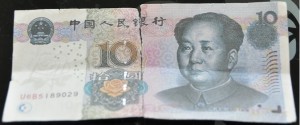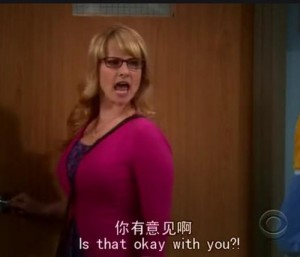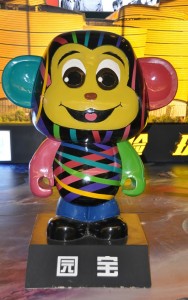Not sure if this is a real psychological syndrome but in China people of all ages like to “point the finger” either in the case of adults metaphorically and in the case of children physically.
I was on the train the other day and passed out as I had not really slept well the previous days. I was out from the moment I got on the train until somewhere about an hour from home. It was the strangest experience as I woke up to adults shouting at someone to be quiet, a couple next to me complaining that they could not sleep because of the noise, and the people behind me saying they were grateful to be getting off soon.
So I went to investigate. There was a child which kept repeating the same words over and over again so I wandered over there and asked the parents if they could keep their kid calm. They seemed confused and I realized that I was so tired I was speaking in English. But they answered in Mandarin that they were really sorry but they could not do anything about their child because he was always like this and I realized that their child was autistic.
Because I started the conversation in English, I did not want them to think I was yelling at them or anything along those lines so I started a conversation with them about things that might calm him down. If you actually bothered to look at the child, you could tell that something was developmentally wrong since he was the size of a 7 year old but behaved like a 2 year old. He could only say about five words over and over again and kind of lurched about.
What I thought was interesting was the other people in the train car. So after the father said some Chinese words which I think were describing autistic, the other passengers went from complaining about a child who “would not shut up” to “something was wrong with the parents.” Basically they claimed that because something was wrong with the parents they created an ill-behaved child with issues.
The funny thing is that these parents had an ill-behaved child who was autistic which is a recognized genetic and metal illness. What do you have to say about your ill behaved child peeing in the street, throwing crap, and hitting adults who are perfectly physiologically and mentally normal?
My issue with many of the adults in any country is the fact that when it comes to their problems, “it is everyone else’s fault” and when it is someone else’s problem “it is their fault.” My biggest pet peeve is when others but especially professors and other educators say, “Well why didn’t they do something about it?” Seriously, the question you should be asking yourself if, “Why didn’t you bother to help out?” If you are going to be so righteous and supposedly so much better than everyone else then get over there and help out.
Granted I get overly involved in other people’s issues but I certainly will never be the person sitting around doing nothing. In this particular case, I did screw up a little – I offered the kid a taro treat which usually, you never give an autistic child more sugar, but the mom was nice and said thanks but he can’t have that. But we did have a good discussion about trying to seek help for their son and options about enrolling their child into an autistic school.
Unfortunately, while there are some international educators who go to some of the more remote cities in China, most are centered in areas where parents can afford to pay for autistic services. As I had never even heard of Changsha until this recent trip to China, I am assuming that their special needs, educational services are close to none.
Maybe a Fulbrighter should start a project on special needs education in smaller cities and rural areas in China and how to change the overall cultural impression that the parents did something wrong. It is more likely that the terrible environmental pollution in China caused the parents to have an autistic child than the parents being “bad people.” Afterall, look at all the shining examples of healthy and crappy children one encounters on a daily basis. Most of the time, their parents and/or family encourage them to do idiotic things like cut lines. See Wuhan cultural festival post, where the parent told the child to cut in line because the adults would not let him stamp his book and he did not want to wait.




